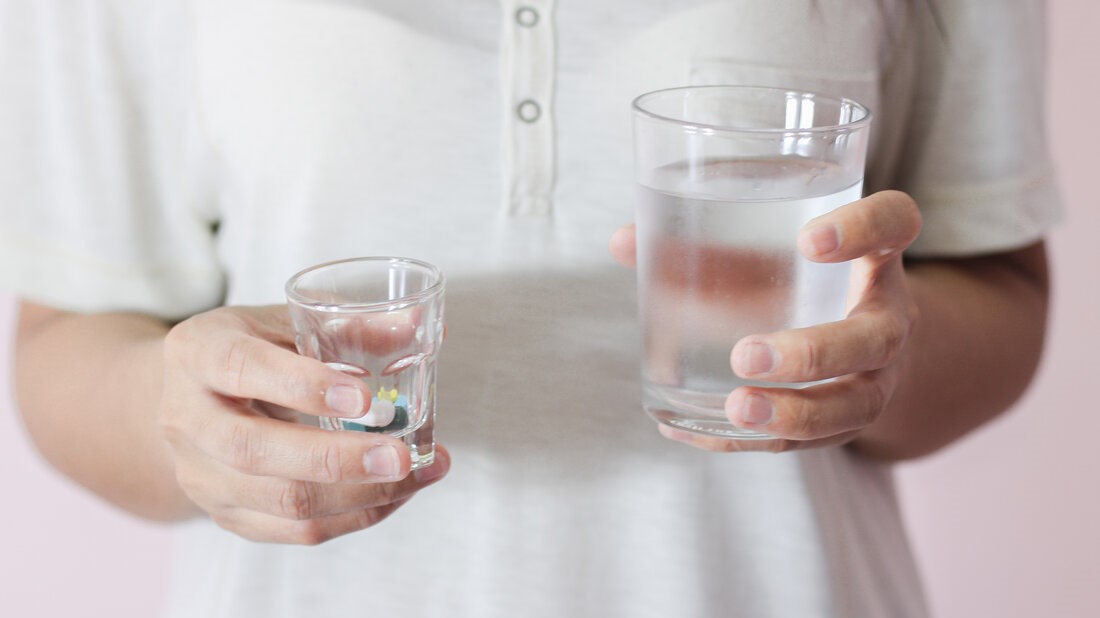 Opioid use and misuse are currently at national health crisis levels. Opioid dependency is a disease affecting thousands of Americans every year. In 2019 alone, there were 50,000 deaths caused by opioid overdoses in the United States. Opioids are a class of drug, some of which are prescribed by doctors to treat pain and chronic pain. Unfortunately, many individuals develop dependencies to these prescriptions, which may lead to further drug use or the use of other opioid drugs, instead of or in addition to, the originally prescribed substance.
Opioid use and misuse are currently at national health crisis levels. Opioid dependency is a disease affecting thousands of Americans every year. In 2019 alone, there were 50,000 deaths caused by opioid overdoses in the United States. Opioids are a class of drug, some of which are prescribed by doctors to treat pain and chronic pain. Unfortunately, many individuals develop dependencies to these prescriptions, which may lead to further drug use or the use of other opioid drugs, instead of or in addition to, the originally prescribed substance.
Several common types of opioid drugs are:
- Heroin
- Hydrocodone
- Oxycodone
- Morphine
- Codeine
- Fentanyl
Affordable, accessible, and effective treatment for drug dependency is an urgent and lifesaving necessity in many communities throughout the country, including Maryland.
Opioid Dependency in Maryland
Here in Maryland, opioid dependency is on the rise and is a leading cause of death involving intoxication. In fact, our state has one of the five highest opioid-related death rates in the country. Many Maryland opioid dependencies developed after patients were prescribed certain addictive medications after surgery or to treat symptoms and chronic pain. Additionally, the use of synthetically modified fentanyl has become something of a local epidemic. In Maryland in 2020, fentanyl was a leading cause of drug-related deaths, and the number continues to rise at a rate of over 9% throughout the state.
Medication-Assisted Treatment for Opioid Dependency
Although thousands of people struggle with substance abuse disorders and opioid dependencies every year, it is a treatable medical condition. While treatment methods and plans vary from person to person depending on the individual’s background, specific dependencies, mental health history, and other factors, there are several common treatments for opioid dependencies and other substance abuse disorders.
One of the best ways to treat opioid dependency is through medication-assisted treatment (MAT). When using MAT, a treatment plan involving the use of an FDA-approved drug is developed and implemented by medical professionals who fully understand the complexities of substance abuse. According to the Substance Abuse and Mental Health Services Administration, MAT is “…the use of medications, in combination with counseling and behavioral therapies, to provide a ‘whole-patient’ approach to the treatment of substance use disorders.”
Is MAT Effective in Treating Opioid Dependency?
Medication-assisted treatment is a widely misunderstood form of treatment. While there are many who believe treating drug dependencies with other drugs is a matter of replacing one addiction with another, this is simply not true. In fact, research shows that when combined with behavioral and psychosocial treatment, MAT is one of the most effective ways of treating substance abuse disease. Despite the overwhelming success of MAT in treating this disease, there continues to be a stigma that is promoted by policymakers, politicians, voters, and individuals.
For this reason, people struggling with opioid abuse may not be aware that MAT clinics are available to them, or they may feel too ashamed of their addiction to seek help. In other instances, people struggling with drug dependencies may have been given false information about MAT clinics and how the process really works. It is important to end these harmful myths about medication-assisted treatment, so we can reach and help as many people as possible and fight against the opioid epidemic.
Effective as it is, it is important to remember that MAT is not a “quick fix.” This treatment option, like almost any successful medical treatment, takes time and dedication. For many individuals struggling with opioid dependencies, MAT is a vital step in the recovery process. When administered professionally, MAT is safe, effective and has helped thousands of patients feel healthy and ready to continue their journey towards sobriety. Under the strict and careful guidance of trained professionals, individuals being treated with MAT drugs will slowly and carefully taper off their MAT drug dosage until they reach full recovery and can discontinue MAT.
What Are MAT Drugs?

There are three FDA-approved drugs used for MAT. These drugs are:
Naltrexone
Taken orally, Naltrexone blocks the effects of morphine, heroin, and other opiates on the brain. It is also effective in treating alcohol dependency. Vivitrol is an extended-release, injectable form of this naltrexone.
Suboxone (buprenorphine)
Taken orally, this drug can be administered safely from home with professional guidance. It is safe and effective in treating opioid addictions.
Methadone
This drug is used to treat serious withdrawals from heroin, morphine, and other opioid drugs. It must be administered in a clinical setting, as the results can be similar to using opioid drugs.
Perhaps the most common and well-known example of MAT is the use of methadone in treating heroin and morphine dependency. When patients are treated with methadone, the drug is carefully administered once per day via liquid solution. Methadone binds to the brain receptors and nervous system and changes the way the brain reacts to certain stimuli, such as the use of other drugs. It effectively reduces opioid cravings and alleviates many physical symptoms of withdrawal. Methadone administration needs to be very carefully monitored by a professional, however. Because methadone fully binds to the brain receptors and partially mimics the effects of opioid drugs, it can be dangerous if abused.
Benefits of Vivitrol and MAT
While methadone may be the most well-known MAT drug, there are other, potentially safer, options available as well. Substance abuse disorders can be treated effectively using several FDA-approved drugs, including Vivitrol. For many individuals with drug dependencies, MAT using Vivitrol is an extremely successful treatment option offered here at Maryland Recovery. Vivitrol is a form of the FDA-approved MAT drug, naltrexone. It is administered as a once-monthly injection. Vivitrol blocks signals to the brain’s reward system which can cause substance dependencies.
Since Vivitrol blocks the feelings of pleasure and reward which using drugs and alcohol stimulates in the brain, it is effective both in treating opioid dependencies as well as alcoholism. Unlike methadone, Vivitrol does not in any way mimic the effects of other opioids and is therefore a completely non-addictive substance. When combined with counseling and support, Vivitrol is proven to be highly effective both in treating patients with dependencies as well as preventing relapses down the road. There are many benefits to using Vivitrol for treating patients with substance abuse disorders.
Benefits of using Vivitrol for MAT include the following:
- It is non-addictive
- It is not a narcotic
- It does not prolong opioid dependencies
- It does not act like a substitute for opioids
- It can be used to treat alcohol dependency as well
- Withdrawal symptoms do not resurface when it is stopped
Some patients experience certain side effects when they start using Vivitrol, which usually diminish as treatment continues and the body becomes more accustomed to the substance.
Side effects of receiving Vivitrol injections may include:
- Nausea and loss of appetite
- Headache and dizziness
- Drowsiness
- Anxiety
Another drawback of using Vivitrol is that patients must stop opioid use before beginning treatment with Vivitrol, which can be difficult for some individuals seeking immediate help.
Benefits of Suboxone and MAT
Another form of medication-assisted treatment offered at Maryland Recovery is treatment using Suboxone. Suboxone is an FDA-approved drug comprised of buprenorphine and naloxone. It is administered once a day, with effects lasting at least 24 hours and up to 3 days. Research has shown it to be highly effective in treating individuals with opioid dependency. Unlike methadone, Suboxone does not fully bind to the brain receptors. Even as a partial agonist drug, Suboxone is effective in preventing withdrawal symptoms as well as reducing cravings.
If an individual attempts to abuse heroin, morphine, or any other opioids while receiving Suboxone treatments, the Suboxone in their system will create an adverse effect, making opioid use less desirable. Length of treatment with Suboxone varies from person to person depending on factors such as weight, metabolism, dependency, and background. Some people may only need Suboxone treatment for a couple of months, while others may need to continue getting treatments for several years. However, in all cases, use will be slowly and carefully tapered as the individual regains their health.
As with all drugs and medications, there are some side effects when receiving Suboxone treatments. Because Suboxone is a partial opioid agonist, it produces some similar but much weaker results and side-effects as using opioids.
These side effects include:
- Feelings of euphoria
- Respiratory issues
- Depression
- Constipation, diarrhea, nausea
Despite these side effects, there is a lower risk of misuse with Suboxone than with other drugs. Overdose with Suboxone alone is extremely unlikely to cause slowed breathing and is, therefore, less dangerous even when misused.
Am I a Candidate for MAT?
If you are struggling with opioids, prescription drugs, or alcohol dependencies, MAT treatment can help you on your road to sobriety. Used in conjunction with counseling, psychosocial and other treatments and support, MAT with Suboxone or Vivitrol is a potentially lifesaving treatment option.
Anyone seeking assistance treating current drug dependency or help preventing relapse may contact Maryland Recovery. We are a drug and alcohol rehabilitation and treatment center focused on helping our patients regain sobriety and control of their life. We are focused on treating the whole patient and focus on all underlying issues while treating current dependencies. Because everyone is different, we will work with every patient to create a personal, individual treatment plan.
Find MAT Options at Maryland Recovery
 Maryland Recovery and our staff are committed to helping people affected by the opioid epidemic. We understand the need for effective, affordable, and accessible treatment options for those experiencing substance abuse disorders. Our professional staff is devoted to providing quality, personalized care.
Maryland Recovery and our staff are committed to helping people affected by the opioid epidemic. We understand the need for effective, affordable, and accessible treatment options for those experiencing substance abuse disorders. Our professional staff is devoted to providing quality, personalized care.
To learn more about MAT treatment options at Maryland Recovery, contact us today to get in touch with our addiction treatment team.
Reviewed by Christopher Schwartfigure MS, LGPC, CAC-AD








